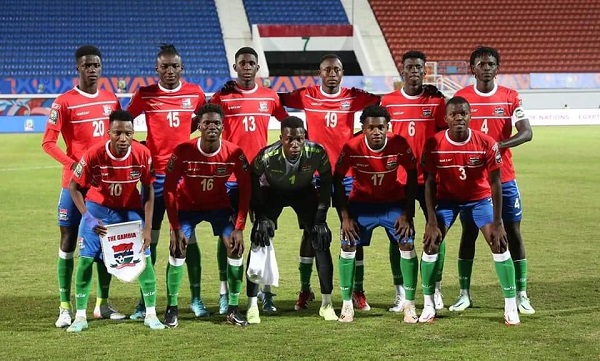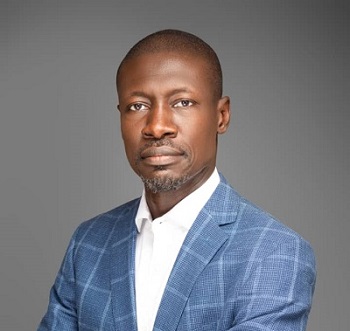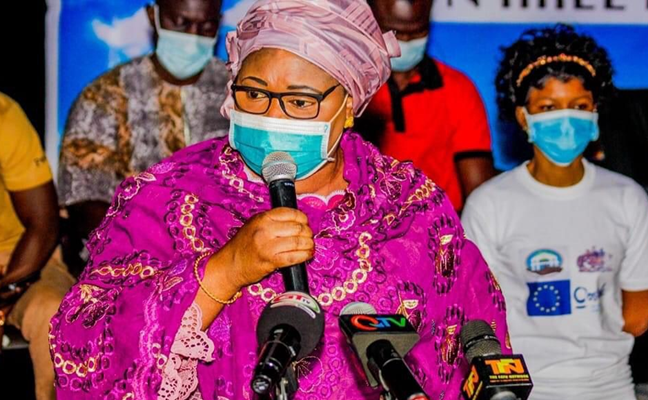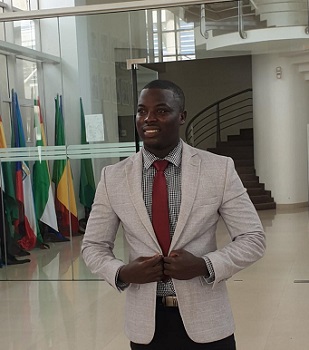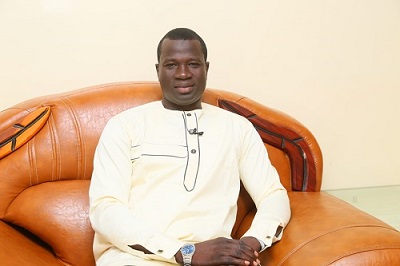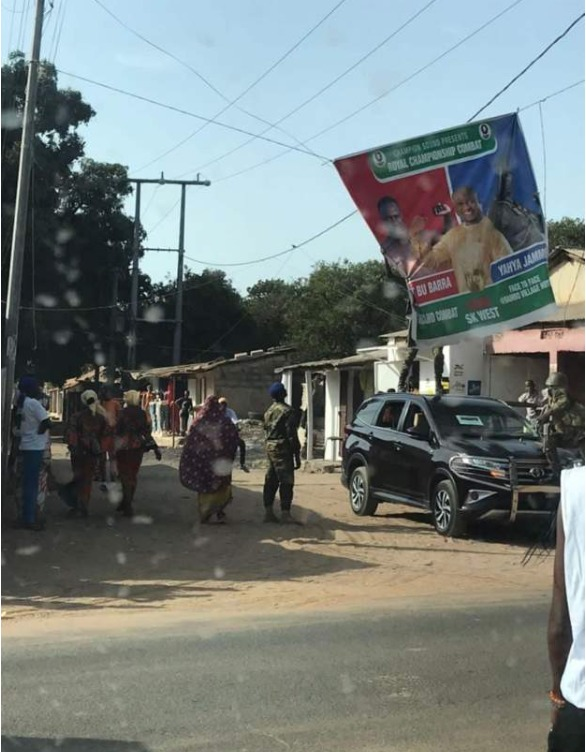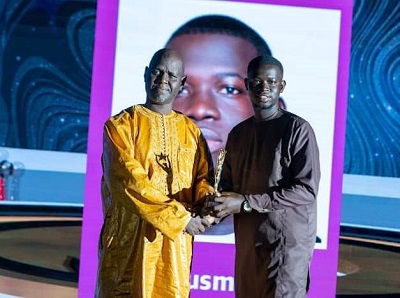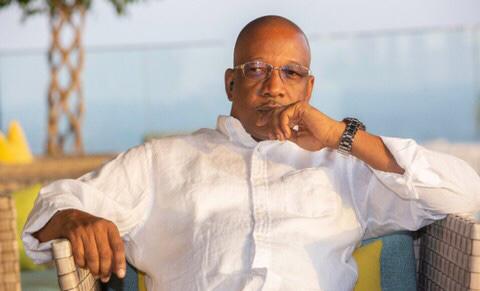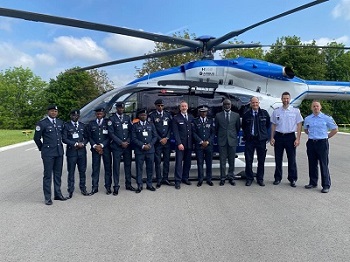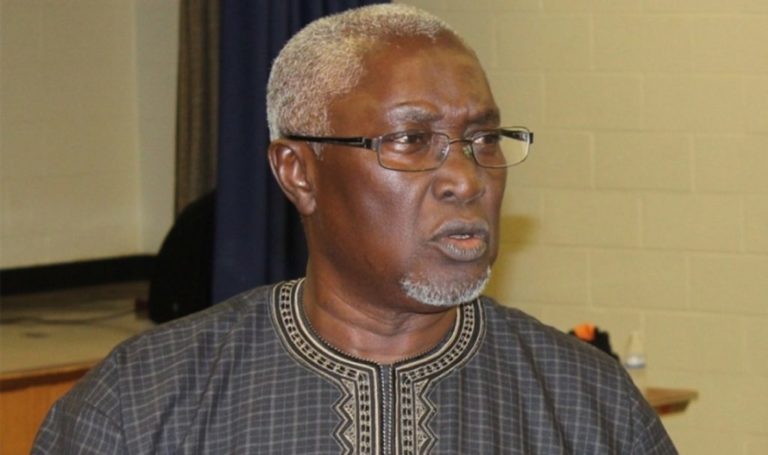
Every profession has its bad apples and physicians are no exception. The most important irony of modern healthcare is that public expectations are rising faster than the ability of health services to meet them. Patients nowadays no longer want to be treated as passive recipients of medical care. Instead, they want to be treated as co-producers or partners able to manage their illnesses. In the field of medical negligence, expert opinion is called upon for the possible determination of the case against medical men. Is the court bound by expert opinion by medical men in the determination of medical negligence? We examine this in this article.
Opinion
An opinion is normally defined as an inference, a belief, or a condition drawn from facts. It is different from a fact which is a reality, a thing, or a state of things that can be seen, touched or heard, or otherwise perceived by the senses. The general rule of evidence is that the court may allow witnesses to testify of facts which are within their knowledge and therefore opinions of witnesses are inadmissible as evidence. Witnesses are supposed to depose or give evidence of facts and not opinions. What a witness thinks or believes is generally irrelevant. Section 60 of the Ghanaian Evidence Act, 1975 (NRCD 323) states as follows “A witness may not testify to a matter unless sufficient evidence is introduced to support a finding that he has personal knowledge of the matter.” The reason for excluding the opinion of a witness is twofold:
- It is usually irrelevant; and
- The admissibility of opinion evidence may amount to a usurpation of the functions of the court. It is the duty of the court to decide on all facts and issues that are before it and draw the necessary conclusion or inferences therefore and not for others to perform that task.
Exemptions
This notwithstanding, there are exemptions to this rule. For instance, Section 75 of the Evidence Act of the Gambia which is in pari materia with Section 112 of the Ghanaian Evidence Act, 1975 (NRCD 323) permits expert opinion to be given in evidence before the court in matters relating to foreign law, customs, science, the identity of handwriting, and fingerprints. The list is more indicative than exhaustive. Experts nowadays give evidence on a wide range of matters in various forms, eg, age, pathologist’s report, chemical analyst reports, fingerprints, footprints, DNA identification, blood samples, handwriting, etc.
In both the Gambia and Ghana, a person is qualified to testify as an expert if he satisfies the court that he is an expert on the subject to which his testimony relates because of his special skill, experience, or training. This notwithstanding, there is a procedure to adopt when calling an expert witness and this includes;
- The witness should first give evidence of his training, qualification, and or experience in that field, i.e. the foundation must be laid for him to qualify and be treated as an expert witness;
- The Privy Council had occasion in the case Said Azani v Comptroller of Customs(1954) WLR 1405 to answer the question, “Who is an expert?” the court, in relation to expertise in foreign law, held that “not only the general nature but also the precise character of the question upon which expert evidence is required, have to be taken into account when deciding whether the qualifications of a person entitle him to be regarded as a competent witness.” Accordingly, the practical knowledge of a person who is not a lawyer may be sufficient in certain cases to qualify him as a competent expert on a question of foreign law;
- Having laid the foundation, the witness must then depose to the facts which form the basis of his opinion or conclusion. In the case of Reuben Allen v the State, the court held that the evidence of a witness to the effect that the accused appeared drunk, has no probative value “especially since(the witness) did not give the facts on which opinion is based. Also in R v Davies, a road traffic case in which it was also held that an ordinary non-expert witness may give his opinion that a person is drunk if he gives the facts upon which his opinion is based.
For whenever an opinion is relevant and admissible as evidence, the facts which form its basis are likewise relevant and admissible as evidence according to Section 65 of the Evidence Act of the Gambia. Thus a pathologist deposing as to the cause of death will first give evidence as to the physical condition of the corpse, any injuries or abnormalities which have been discovered, and then proceed to give an opinion as to what may have been the cause of death.
Bolam Test as starting Point in Expert evidence
Expert evidence is admissible in court whenever there are matters or issues which require their expertise in terms of observation, analysis, description, and resolution. In medical negligence litigation, the ‘Bolam’ test is cited as the starting point.
The ‘Bolam’ principle has long been the traditional test governing how much information is necessary to avoid liability in negligence. Doctors would rely on their professional judgment to determine the amount of information to be disclosed.
For instance, the Evidence Act 1994 of the Gambia, Section 75 which is in pari materia with Section 112 of the Evidence Act of Ghana,1975 (NRCD 323) permits expert opinion to be given in evidence before the court in matters relating to medical, science, pathologist’s report, and many others.
In Mahon v Osborne [(1939) 2 KB 14], the plaintiff was admitted to the hospital for an abdominal operation. He later died and a swab was found in his body. The plaintiff was entitled to call expert evidence that the accident would not have occurred without negligence. In this case, the Court of Appeal held that the standard of care is to be measured by expert evidence.
Lord Justice Goddard p.47 stated: I would not for a moment attempt to define in vacuo the extent of a surgeon’s duty in an operation beyond saying that he must use reasonable care, nor can I imagine anything more than disastrous to the community than to leave it to a jury or to a judge, if sitting alone, to lay down what is proper to do in any particular case without the guidance of witnesses who are qualified to speak on the subject… As it is the task of the surgeon to put swabs in, it is his task to take them out, and in that task, he must use the degree of care which is reasonable in the circumstances and that must depend on the evidence.
From supra, Justice Goddard seems to be aware of the fact that the medical profession has always been shrouded with a lot of complications and technicalities, which a judge may not be able to comprehend. Therefore, the message seems to be very clear that to reach a just and accurate decision, medical experts should be the ones helping the court to deal with such complex issues. Hence, a doctor cannot be said to be guilty of negligence if he or she has acted in accordance with a practice accepted by a responsible body of professional opinion. In other words, a doctor who is in breach of his or her duty has to be judged by his peers and not by the court.
In the case of Roe v Minister for Health [(1954) 2 QB 66] the plaintiff became paralyzed after receiving an injection in hospital. Phenol had leaked into the syringe causing the paralysis. At this time, it was known that phenol could get into the syringe through invisible cracks. The court held that the defendants were not negligent as judged by the standard of a reasonable person at the time of the accident, they could not have avoided the accident. The court would not condemn a defendant with ‘the benefit of hindsight’. Perhaps, it is vital here to refer to the passage from the judgment of Denning LJ which indeed provides a clue to the philosophy of the Bolam principle. His Lordship at p.83 said:
If the anesthetists had foreseen that the ampoules might get cracked with cracks that could not be detected on inspection, they would no doubt have dyed the phenol a deep blue; and this would expose the contamination. But I do not think that their failure to foresee this was negligence. It is so easy to be wise after the event and to condemn as negligence that which is only a misadventure. We ought always to be on our guard against it, especially in cases against doctors and hospitals. Medical science has conferred great benefits on mankind, but these benefits are attended by considerable risks. Every surgical operation is attended by risks.
Based on the statement above, Denning LJ had in mind that medicine as a profession has pros and cons in the course of treatment. Being aware of the considerable risks in the medical profession, perhaps it is justified the decision taken by the courts that a doctor or defendant should be judged by his peers in medical negligence cases. The other relevant case to cite here is the case of Hunter v Hantley [(1955) SLT 231, (1955) SC 200]. In this case, the plaintiff claimed the doctor treating him was negligent in using an unsuitable needle. Lord President Clyde p.217 stated:
To succeed in an action based on negligence, whether against a doctor or anyone else, it is of course necessary to establish a breach of that duty to take care which the law requires, and the degree of want of care which constitutes negligence must vary with circumstances… But where the conduct of a doctor, or indeed of any professional man, is concerned, the circumstances are not so precise and clear as in the normal case. In the realm of diagnosis and treatment, there is ample scope for genuine difference of opinion and one man is not negligent merely because his conclusion differs from that of other professional men, nor because he has displayed less skill or knowledge than others would have shown. The true test for establishing negligence in diagnosis and treatment on the part of the doctor is whether he has been proven to be guilty of such failure as no doctor of ordinary skill would be guilty of acting with ordinary care.
From supra, there is no doubt that there is a heavy burden of proof on a claimant to start a case against the doctor or a professional man based on negligence. This is because the claimant would have to establish that the doctor or a professional man deviated from the ordinary skill that is required as far as the profession is concerned. To succeed in his or her claim, the claimant would have to establish that no professional man of ordinary skill would have followed the course taken by the defendant i.e. in the course of diagnosis and treatment.
Thus, the usual practice of other professionals in the same area will be a significant factor in determining this issue. “Looking at the decisions of the courts before the advent of the Bolam principle, it is evident that the earlier cases have paved the way for the development of the Bolam test as used in medical negligence cases. Medicine is an inexact science of which its outcome is rarely predictable. It would be a disservice to the community at large if liability were to be imposed on hospitals and doctors for everything that happens to go wrong (Puteri Nemie, n.d.). Hence, there must be a proper tool to gauge the standard of care of a doctor in determining his or her liability in medical negligence cases” (Puteri Nemie, n.d.).
Difficulties with the Bolam Test
The justification for the Bolam principle was stated by Lord Scarman in Maynard v West Midlands RHA (1985) 1 All ER at p. 635 when he said: “Differences of opinion exist, and continue to exist, in the medical as in other professions. There is seldom any one answer exclusive of all others to problems of professional judgment. A court may prefer one body of opinion to the other, but that is no basis for a conclusion of negligence.
The Bolam principle is seen as unfair to claimants and too protective of professionals. This is because the doctor is only considered to be negligent based on what is determined by a body of professionals. Also, the rule is yet another example of professions protecting one another. It is important to note that in the case of medical negligence following the Bolam principle, courts have resorted to a doctor’s testimony for help. Finally, the Bolam principle requires the defendant to conform to a ‘responsible’ body of medical opinion.
Court Not Bound by Expert Evidence
There are instances where the court is confronted with a conflict in what is regarded as expert opinions. In the Gambian case of Babourcarr Touray v MRC and 2 OR GCA CIV.APP. 55/94, where medical experts presented diverse explanations as to the cause of gangrene(death of body tissue due to a lack of blood flow or a serious bacterial infection) which led to the loss of the plaintiff’s two hands. When this happens, the court is not bound to accept the opinion of an expert or anybody else. It is the duty of the court to describe what is logical, not the medical profession. The court has to examine all the issues that are put before it.
In other Ghanaian cases such as Conney V Bemtum Willaims, [1984-86] 2 GLR 303, the court held that the report of an expert being a handwriting expert was merely to assist the court in arriving at a conclusion and the court can choose to if ignore same.
Additionally, in Tetteh V Hayford, (J4 34 of 2011) [2012] GHASC 12, the court is not bound by the evidence of the expert report but if the court rejects the evidence of the expert, the court would have to give reasons for the rejection.
In Feneku V John Teye, (2001-2002] SCG LR 985, the court also stated that the testimony of an expert is only to guide the court, and the judge is not bound by it.
Finally, in Manu @Kabonya V The Rep, [1977]1 GLR 196, the court rejected the medical evidence which was to be used to prove the cause of death because the cause of death was not beyond common experience. Therefore, if the issue of contention is so obvious and the ordinary man can understand, there is no need for an expert opinion.
The Authenticity of Expert Knowledge
Thus, Bolitho questioned the authenticity of expert knowledge given the Bolam test to the extent that opinion among expert groups may not be based on sound current knowledge. But where the opinion is sound, the case listens.
Another case worth discussing is the Ghanaian case of Asantekramo, alias Kumah v. Attorney–General [1975] 1 GLR 319, where a nineteen-year-old woman who was diagnosed with ruptured ectopic pregnancy underwent an urgent surgical operation at the Komfo Anokye Government Hospital. While the surgery was successful, her right arm became swollen and gangrenous after being transfused an amount of blood by the nursing staff through a vein in that arm. To save her life, her arm was amputated. Two years later, the woman sued the State, seeking damages for negligence on the part of the hospital staff.
The defense raised by the testifying surgeon that the occurrence was a ‘mystery’ was rejected by the court. The expert evidence showed that the bacteria that caused the gangrene was either transmitted through the blood transfusion needle or a dextrose infusion administered to the woman. The Court held the State liable for the negligence of the hospital and awarded damages to the plaintiff.
In Life Healthcare Group (Pty) Ltd v Dr. Suliman (529/17) [2018] ZASCA 118 (20 September 2018): The alleged grounds of negligence related to the nursing staff’s failure to alert the attending doctor of decelerations in the fetal heart rate, and the unavailability of the requisite instruments and skills for the urgent delivery of the baby. The allegation in respect of the doctor’s negligence lies in the doctor’s hands-off approach in that he only saw the mother for the first time approximately 10 hours after she had been admitted. The only question before the High Court was the allotment of liability between the hospital and the doctor. The High Court held the hospital 100% liable for the damage as a causal link between the doctor’s negligence and the damage was not proved.
Shongwe ADP, writing for the SCA, reiterated that establishing factual causation with sufficient certainty can be difficult in medical negligence matters. It must be established that ‘but for’ the doctor’s conduct or omission, the harm would not have occurred (Lee v Minister of Correctional Services [2012] ZACC 30). In respect of factual causation, the SCA stated that the High Court should have asked whether it was “more probable than not that the birth injuries suffered by the baby could have been avoided if Dr. Suliman had attended the hospital earlier”.
The High Court relied on an isolated statement of the hospital’s expert to arrive at its factual causation finding, when the expert said that he “could not say that the baby would have been saved [if the baby was] delivered by cesarean section at some time between 17h30 and 20h00”. On appeal, the SCA found that the expert contradicted his statement when he indicated that:
There is strong reason to believe that, [an earlier decision to do a cesarean section] would have [prevented the cerebral palsy], because cerebral palsy or brain damage does not occur to that extent that rapidly.
The joint minute of the respective experts also confirmed that the damage could have been prevented if the doctor had seen the patient earlier as the brain damage probably only occurred at a later stage of the labour process.
After careful consideration of all the evidence, the SCA cautioned judges against readily accepting isolated statements of experts, especially when dealing with a field where medical certainty is virtually impossible. Expert evidence must be weighed, as a whole, and it is the exclusive duty of a court to make the final decision on the evaluation of expert opinion.
Accordingly, the SCA held that the doctor’s conduct was causally connected to the damage. The SCA upheld the appeal and ordered apportionment of 60% – 40% in favor of the hospital.
In MEC for Health, Western Cape v Quole (928/2017) [2018] ZASCA 132 (28 September 2018), his case concerned allegations of negligence against medical staff, which essentially related to the pre-natal period, as it pertained to the treatment of the mother’s urinary tract infection and the non-intervention of medical staff to deliver the baby at an earlier stage. The baby in this matter was born with an abnormally small head (known as microcephaly). The main questions in the case related to the cause and time of occurrence of the microcephaly, and whether the cause was connected to the conduct of the medical staff.
The High Court found that the defendant’s medical staff breached their legal duty towards the mother and baby, and ordered that the MEC pay damages.
The SCA was critical of the High Court’s acceptance of the evidence of the plaintiff’s expert, which had no factual basis, while the opinion evidence of the MEC’s experts was logical, well-reasoned, and founded on facts. The High Court came to a general conclusion which made no factual finding as to the cause of the brain damage, nor did it set out reasons for its preference of the opinion of the plaintiff’s expert, over that of the defendant.
JA Dambuza, writing for the SCA, repeated the principle that “she who asserts a damage-causing event must prove it”. The medical staff’s legal duty to the mother and her baby entailed, as set out in Van Wyk v Lewis 1924 AD 438, “an adherence to the general level of skill and diligence possessed and exercised at the time by members of the branch of the profession to which they belong”.
The SCA confirmed that the evidence of medical experts is central to the determination of the required level of care and whether there was a breach of it. The requirement in evaluating such evidence is that expert witnesses support their opinions with valid reasons. Where proper reasons are advanced in support of an opinion, the probative value of the opinion is strengthened. As was held in the matter of Menday v Protea Assurance Co Ltd 1976 (1) SA 565 (E):
It is not the mere opinion of the witness that is decisive but his ability to satisfy the Court that, because of his special skill, training, and experience, the reasons for the opinion that he expresses are acceptable.
The SCA ultimately held that both the cause of the damage and its timing remained unidentified and accordingly upheld the appeal, dismissing the plaintiff’s claim. The SCA warned that the fact that harm had been occasioned was not, on its own, proof that the medical staff caused it, that they had done so negligently, or even that it resulted in brain injury. Such reverse reasoning from effect to cause is impermissible. (Goliath v Member of Executive Council for Health, Eastern Cape 2015 (2) SA 97 (SCA))
Conclusion
In medical negligence civil litigation, an expert witness is called upon to testify. In the olden days, the Bolam test was a shield and overprotective of medical men. In a recent development, the court is not bound to absolve a defendant from liability for allegedly negligent medical treatment or diagnosis just because of evidence of expert opinion… The court must be satisfied that such opinion has a logical basis, … that the expert has considered comparative risks and benefits and has reached a “defensible conclusion”.
Prof. Raphael Nyarkotey Obu is a (BL) candidate at the Gambia Law School, Banjul, The Gambia, and Daniel Sackey is a Part Two student of the Ghana School of Law, Accra, Ghana. E-mail: [email protected]

